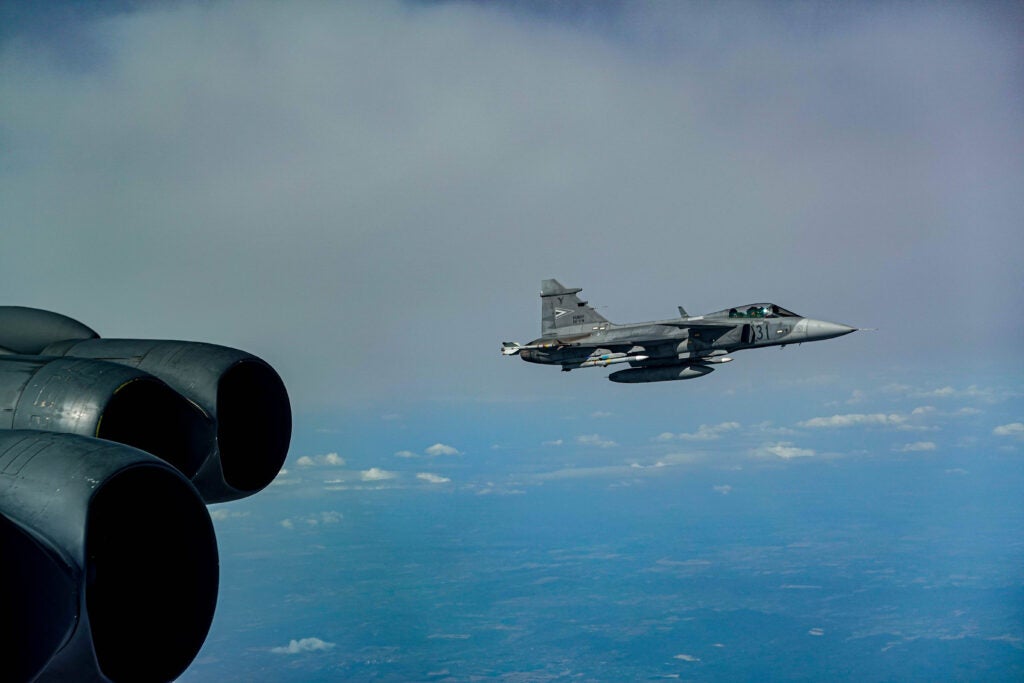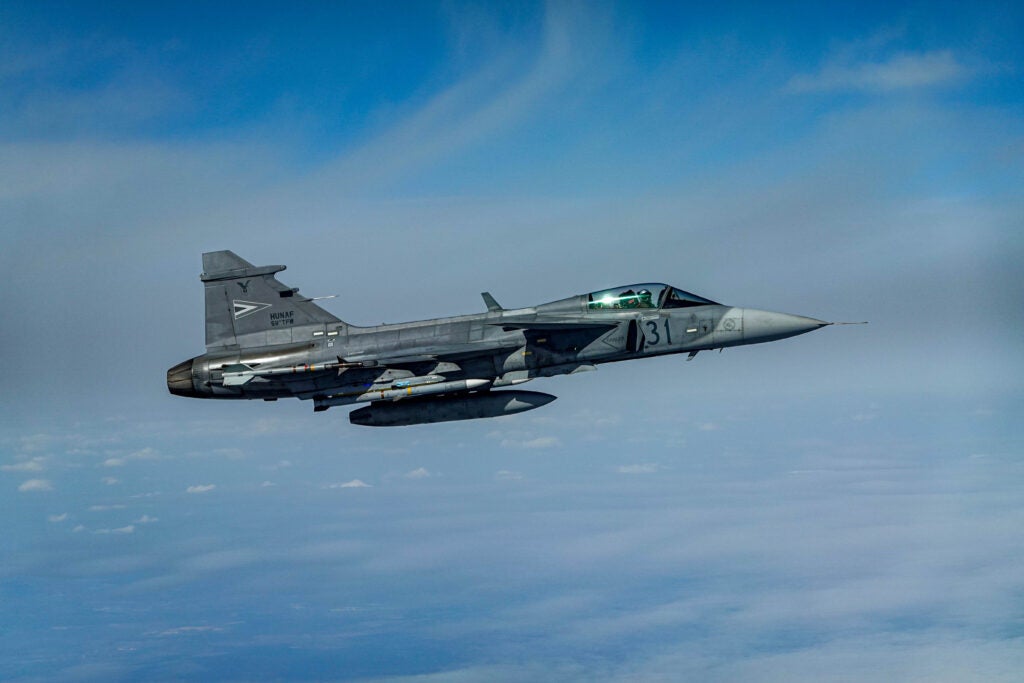Hungary Orders Four More Gripen Cs During Swedish Prime Minister’s Visit
The Hungarian government has placed an order for the purchase of four more Gripen Cs for the Hungarian Air Force.
The announcement was made following a Friday meeting between Hungarian Prime Minister Victor Orban and Swedish Prime Minister Ulf Kristersson in Budapest. At a press conference following the meeting, Kristersson said the deal would strengthen European security and benefit both countries, adding that he was pleased to see more Gripens flying in European airspace.
In a press release, Saab said that it had also signed a memorandum of understanding with the Hungarian Ministry of Defence for the development of high-tech industrial areas and fighter aircraft capabilities, with Saab to provide support for the establishment of a Centre of Excellence for VR technologies in Hungary.
According to Swedish public broadcaster SVT, the Gripen deal also extends Saab’s contract for support and logistics services it provides for the Hungarian Air Force’s current fleet of 12 Gripen Cs and two Gripen Ds through 2036. The support contract was originally set to expire in 2026, when the Gripens reach the end of their lease and become fully owned by the Hungarian Air Force.

The meeting between Orban and Kristersson took place ahead of a Hungarian parliamentary vote to ratify Sweden’s NATO membership that is scheduled to take place on 26 February. Following Turkey’s ratification of Sweden’s entry into the alliance in January, Hungary is the sole NATO member yet to approve Swedish membership, with lawmakers from Orban’s ruling Fidesz party boycotting a February 5 vote called by opposition to approve Swedish NATO membership.
Orban has hinted he sought a meeting with Kristersson prior to approving Stockholm’s entry to NATO, announcing prior to Turkish lawmakers’ approval of Swedish NATO membership that he wanted to “negotiate” with Kristersson.
Orban’s stalling tactics have met with increasingly vocal disapproval from European Union and United States lawmakers. Most recently, a bipartisan delegation of U.S. Senators that visited Hungary on February 18 said that they would propose a resolution urging Orban to cease stalling and condemning democratic backsliding in Hungary under his rule should delays continue, after Hungarian officials declined to meet with them during the visit.

